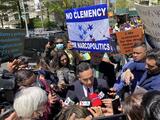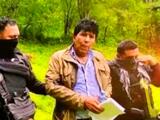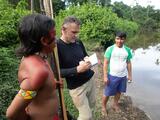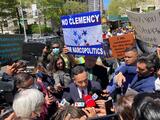Former Honduran police chief charged with trafficking drugs for president and his brother
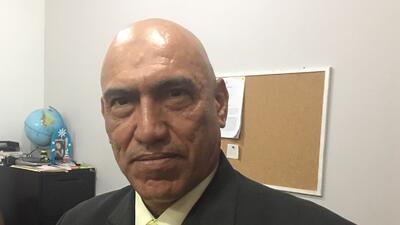
The United States Attorney for the Southern District of New York and the DEA , on Thursday announced that Juan Carlos Bonilla, alias ‘El Tigre,’ was charged in federal court with conspiring to import cocaine into the United States, and related weapons offenses.
U.S. Attorney Geoffrey S. Berman said that Bonilla “allegedly abused his position … on behalf of convicted former Honduran congressman, Tony Hernandez, and his brother the president [Juan Orlando Hernandez].”
Thursday's indictment places even greater pressure on president Hernandez who has been repeatedly accused by prosecutors in New York of ties to drug traffickers.
At the same time, Hernandez is considered a key ally of the Trump adminsitration in its efforts to halt the flow of illegal migration from Central America.
President Trump has repeatedly praised the efforts of president Hernandez and has even invited him to the White House.
President Hernandez has consistently denied the accusations against him. Bonilla did not immediately respond to a message from Univision seeking his reaction.
Warnings
U.S. Senator Patrick Leahy, A Democrat who is an influential voice on foreign policy, told Univision, “For years, I and others warned U.S. administrations that General Bonilla was not to be trusted, based on reports implicating him in drug trafficking and other crimes, including murder."
He went on to say that the U.S. is making the same mistake with President Hernandez. "Yet again, President Hernandez is linked, this time through Bonilla, to illegal drug trafficking. The State and Defense Departments should not be giving aid to a government whose leaders are involved in corruption and violations of human rights.”
The indictment alleges that Bonilla “oversaw the transshipment of multi-ton loads of cocaine bound for the U.S., used machineguns and other weaponry to accomplish that, and participated in extreme violence, including the murder of a rival trafficker, to further the conspiracy.”
The allegations stem from evidence in the trial last hear in October of Tony Hernandez in which evidence was introduced incriminating Bonilla.
Tony Hernandez was convicted by a jury and is due to be sentenced on June 29, 2020.
Bribes
Between approximately 2003 and 2020, U.S. prosecutors say “multiple drug trafficking organizations in Honduras and elsewhere worked together, and with support from certain prominent public and private individuals, including Honduran politicians and law enforcement officials, to receive multi-ton loads of cocaine sent to Honduras from, among other places, Colombia and Venezuela via air and maritime routes, and to transport the drugs westward in Honduras toward the border with Guatemala and eventually to the United States.”
The traffickers allegedly paid bribes to public officials, including president Hernandez, and his predecessor Porfirio Lobo, as well as members of the National Congress of Honduras, and personnel from the Honduran National Police.
Bonilla, 60, was a member of the Honduran police for 30 years, rising to be regional police chief in western Honduras, an area controlling the border with Guatemala that was strategically important to drug traffickers. He was national chief of police from 2012 to 2013, during which time he worked closely with the DEA.
In an interview with Univision last year, Bonilla praised the work of the DEA during his time as police chief for unravelling the trafficking networks and their political tentacles. "In a synchronized and articulated way, we began working jointly with the Department of State, DEA and with the total support of the American embassy and of Colombia and Mexico,” he said.
“It’s important to know that this scourge had been ignored and it seemed that there was collusion. And that collusion, well, it came to an end … this isn’t going to be their territory any longer,” he added.
Bonilla said the DEA was given access to Honduras police and intelligence records, including reports on suspected traffickers and their political friends that had long been covered up. “All the reports went to the DEA. They got everything,” he said.
Double agent
But the indictment now states that he was effectively a double agent, and corruptly exploited his official positions to facilitate cocaine trafficking on behalf of the Hernandez brothers.
That included providing sensitive law enforcement information to facilitate cocaine shipments, including information regarding aerial and maritime interdiction operations.
In July 2011, Bonilla allegedly participated in the murder of a rival drug trafficker at the request of Tony Hernandez because a rival trafficker had attempted to prevent him transporting cocaine through a region of western Honduras near the border with Guatemala.

